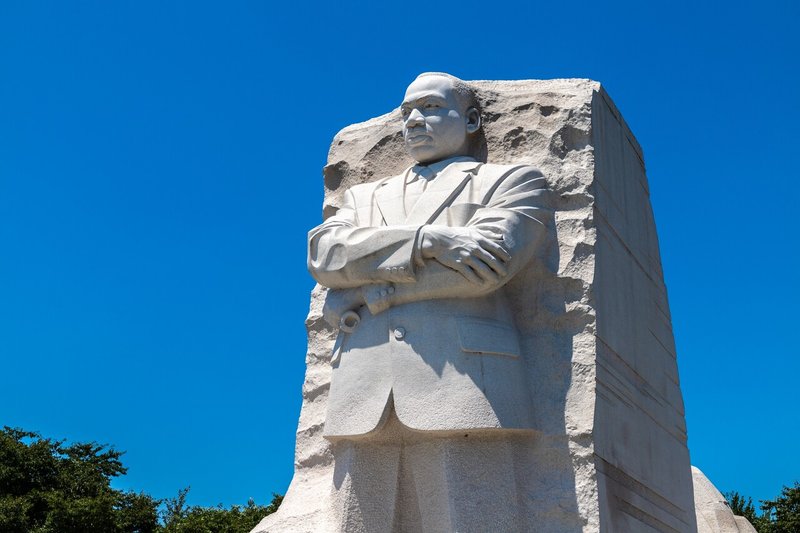
なぜ、ヴィジョンがお題目になってしまうのか?(いいヴィジョンの要件①)
前回の記事では、なぜ、いまヴィジョンが大切かについて、個人と組織の関係性が変わっていく時代の流れにおいて、「みんなで遠くにいく」ことを選択して、中長期的に一貫性をもって取り組んでいくための中核となるものがヴィジョンであるという話をさせて頂きました。
今回の記事では、いいヴィジョンとは何か、について、意識の意識化の観点からお話しします。ヴィジョンについては、すでに多くの経営書などにおいてその定義や重要性は示されていると思いますが、意識の意識化の観点から光を当ててみると、違う切り口で捉えることができます。
ヴィジョンとは何か
まずは、ヴィジョンの定義を確認しておきましょう。
ヴィジョンの定義(落合の考え):
ミッションの実現に向けて、創造される未来の世界と、その世界で最高の発展を遂げている自分たちの将来像
※ミッションの定義(落合の考え):
コミュニティや個人が永続的に追求し続ける目的
ヴィジョンは、一言で言えば「将来像」です。上記の定義においては、自分たちの将来像と、自分たちもその一員となって創造する世界という将来像の2つを含めています。それは、ヴィジョンというものが自分たちだけのためというものではなく、自分たちをとりまく大いなるもののためでもあることが大切であるという考え方が背景にあります。
また、ヴィジョンという将来像を描くためには、その根源としての目的感覚が必要です。一般的にはミッションと呼ばれていますが、私はこれを個人として、あるいは組織としての主体的真理と捉えることができると考えます。
ヴィジョンが最初にあるのではなく、主体的真理やミッションといった目的意識があって、それがある特定の時間軸で将来像として具象化したものがヴィジョンとなります。
いいヴィジョンは、主体的真理とつながっている
ここまでヴィジョンの定義についてお話しをしてきましたが、ここからは「いいヴィジョン」とは何かについて考えていきたいと思います。
いいヴィジョンの要件の1つは、「主体的真理とのつながり」です。主体的真理とは、「自分にとって生きがいとなる理想、自分固有の生きる目的」です。主体的真理について詳しく知りたいという方は、この記事をご参照ください。
さきほど、ヴィジョンが先にあるのではなく、主体的真理やミッションが先にあるという話をしましたが、いいヴィジョンには主体的真理やミッションとのつながりを感じる何かが含まれています。
いくつかの事例をご紹介しながら、もう少し噛み砕いてご説明します。
一つ目の事例として、1960年頃にアメリカの公民権運動を主導したキング牧師の有名な演説「I have a dream (私には夢がある)」を取り上げたいと思います。下記は、その演説の一節となります。(訳は、筆者による意訳)

(Martin Luther King memorial in Washington)
I have a dream that one day this nation will rise up and live out the true meaning of its creed: "We hold these truths to be self-evident, that all men are created equal."
いつの日か、この国が立ち上がり、「我々はこれらの真理を自明のものとし、すべての人間は平等に創られている」という信条の真の意味を生きるようになるという夢があります。
I have a dream that one day on the red hills of Georgia, the sons of former slaves and the sons of former slave owners will be able to sit down together at the table of brotherhood.
いつの日か、ジョージア州のレッドヒルで、元奴隷の息子たちと元奴隷所有者の息子たちが、同じテーブルに、兄弟として一緒に座ることができるようになるという夢があります。
(中略)
I have a dream that my four little children will one day live in a nation where they will not be judged by the color of their skin but by the content of their character.
いつの日か、私の4人の子供たちが、肌の色で判断されるのではなく、人格という中身で判断されるような国に住むという夢があります。
この演説はとても有名なので、みなさんも聞いたり、読んだりされたことがあるのではないでしょうか。もし、まだスピーチを聴いたことがないという方がいれば、是非とも一度聴いてみることをお勧めします。(例えば、こちら)
このスピーチでは、明確なヴィジョンが示されているというだけではなく、キング牧師の強い使命感、生涯をかけてやり抜く覚悟のようなものを感じるのは、私だけではないでしょう。これが、まさにミッションや主体的真理とのつながりと言えるものです。
キング牧師のような人でないと、そんな使命感や覚悟をもつのは無理なのではないか、と思う人もいらっしゃるかもしれません。確かに、公民権運動のような社会全体の問題に対して、影響力を与えるようなリーダーシップを発揮できる人は極めて限られていると思います。
しかし、大切なことは、結果としての影響力の範囲ではなく、主体的真理につながることで、内なるエネルギーが湧いていることを感じられるかどうかではないでしょうか。
内なるエネルギーが湧くことによって、一貫してそのヴィジョンの実現に取り組むことができます。そして、その内なるエネルギーが、周囲の共感や共鳴を生み出し、自分一人ではなく周囲の人と一緒にヴィジョンの実現に取り組むことができます。
ヴィジョンは、主体的真理から始まるのです。
石にかじりついてもやり続ける人がいるか
ヴィジョンは、主体的真理とつながっているということを、別の角度から表現すれば、「いいヴィジョンとは、石にかじりついてもやり続けようとする人がいる」と言うこともできます。
みなさんが所属するチームや組織のヴィジョンに対して、「石にかじりついてもやり続ける人」はいますか?
「石にかじりついてもやり続ける人」が少人数、あるいは、一人であったとしても、そのような人がいるならば、そのヴィジョンは、いいヴィジョン、あるいは、いいヴィジョンになるポテンシャルを秘めているものと言えます。
逆に、どんなに表現が素晴らしいヴィジョンであったとしても、石にかじりついてでもやり続ける人が一人もいなければ、いいヴィジョンであるとは言えません。
新しくチームを作ったり、起業をしたりするときに、チームのヴィジョンを考える場面があると思います。このようなときに、陥りがちなことは、「チームのみんなにとって良いと思えること」を考えようとしすぎるがあまり、「誰にとっても、石にかじりついてでもやり続けようとは思えないもの」になってしまうということです。

チームのみんなにとって良いと思えることを考えることは大切ですし、そのようなアプローチが間違っているわけではありません。しかし、その過程において、一人ひとりの主体的真理とのつながりが捨象されてしまうと、最も大切なことが失われてしまうリスクがあることを十分に認識しておく必要があります。
この点について、当社の事例をご紹介したいと思います。ヴィジョンの話ではないのですが、当社の経営理念の一つとしてバリュー(チーム内で共有したい価値観)を再定義しようとしたときの話になります。
2010年頃に、当社のバリューを再定義しようという提案があり、ボトムアップ的なアプローチで、全社員の意見を引き出して、それを集約していきながら創ることになりました。
当社は、2003年10月29日に創立されたのですが、毎年10月29日頃に、創立記念イベントとして交流を深めたり、経営理念を共有したりするイベントを行っています。その時は、この創立記念イベントという機会を活用して、全社員の意見を集めていこうということになりました。
全社員の意見を引き出していくアプローチはとてもよく、全員で活発に議論をして、10個程度の新しいバリューが言語化されました。バリューの内容も素敵な内容でしたし、そのプロセスも包摂的で一人ひとりの参加感も高いものだったと思います。
そして、この新しいバリューを創って終わりではなく、それを継続的に共有していく仕掛けなども考えていました。しかしながら、2年くらい経過したところで、そのバリューは言葉としては残ってるものの、自分を含めて、社員一人ひとりの心の中にはあまり残らないものになってしまったのです。
その理由としては、「みんなにとって良いものであった」ということは事実だった一方で、「石にかじりついても、やり続けよう」というところまでは至らなかったのではないかと私は捉えています。
ボトムアップのアプローチが悪かったということではありません。それは、素晴らしい取り組みでした。一人ひとりの意見を吸い上げて、チーム全員にとって参加感があって、良いと思えるものを作るという姿勢もよかったと思います。一番反省するべきは、私自身が「石にかじりついてもやり続けよう」というレベルまで覚悟できていなかったことでした。
そのような反省を踏まえて、2012年にアルーのバリューを再度策定し直しました。このときは、一人でもいいから、「石にかじりついてもやり続ける」人がいるということを大切にしました。その一人とは、社長である自分であるべきだろうと考え、バリューの再策定にあたっては、最後は私が決めて、私の腑に落ちる表現にするというアプローチをとりました。
前回のバリュー策定の反省もあったので、そのようなアプローチを取ることに対して、皆賛同してくれました。そのようにして策定した当社のバリューは、今でもしっかりと残っており、企業文化として根付いています。

今回の記事では、いいヴィジョンの要件の一つとして、主体的真理とのつながりがあること、別の角度で表現すれば、「石にかじりついてもやり続ける」人が一人でもいること、についてお話ししました。
本日の問いとなります。(よろしければ、コメントにご意見ください)
・あなたが、「いいヴィジョンだな」と感じたことがあるとすれば、それはどのようなヴィジョンでしたか?そのヴィジョンは、誰のどのような主体的真理につながっていたでしょうか?
・「みんなにとっていい」けれども、「誰にとっても、石にかじりついてもやり続ける」というものではなかったという経験はありますか?それはどのような経験でしたか?
Why do visions become just a title? ( Requirement #1 of a good vision )
In my previous article, I talked about why vision is so important now, and how in the current trend of changing relationships between individuals and organizations, vision is at the core of choosing to "go far together" and to work with consistency over the long term.
In this article, I would like to talk about what a good vision is, from the perspective of conscious awareness. I believe that the definition and importance of vision has already been given in many management books, but if we look at it from the perspective of the ISHIKI(consciousness) Management, we can see it from a different angle.
What is a vision?
First, let's review the definition of vision.
Definition of Vision (Ochiai's idea)
The future world that will be created towards the realization of the mission, and the future image of ourselves achieving the highest level of development in that world.
Definition of mission (Ochiai's idea)
A purpose that a community or individual continues to pursue in perpetuity.
Vision, in a nutshell, is an image of the future. In the above definition, it includes both our own vision of the future and the vision of the world that we ourselves will become a part of and create. This is based on the idea that it is important that our visions are not only for ourselves, but also for the greater good that surrounds us.
In addition, in order to create a vision, a vision of the future, we need a sense of purpose as its root. Commonly referred to as mission, I believe this can be viewed as a subjective truth, either as an individual or as an organization.
Vision is not the first thing that comes to mind, but rather a sense of purpose, such as a subjective truth or mission. A vision is the embodiment of that sense of purpose into a future image on a specific time axis.
Good visions are connected to subjective truths
Now that I've talked about the definition of vision, I'd like to think about what a good vision is.
One of the requirements for good vision is a connection to subjective truth. Subjective truth is "an ideal that makes life worth living for us, a purpose for living that is unique to us." If you would like to know more about subjective truth, please refer to this article.
I mentioned earlier that vision does not come first, but subjective truth and mission do, and a good vision contains something that feels connected to subjective truth and mission.
I will explain a little more in detail with some examples.
As the first example, I would like to take up the famous speech "I have a dream" by Reverend Martin Luther King, Jr. who led the American civil rights movement around 1960. The following is a passage from that speech.
I have a dream that one day this nation will rise up and live out the true meaning of its creed: "We hold these truths to be self-evident, that all men are created equal."
I have a dream that one day on the red hills of Georgia, the sons of former slaves and the sons of former slave owners will be able to sit down together at the table of brotherhood.
I have a dream that my four little children will one day live in a nation where they will not be judged by the color of their skin but by the content of their character.
This speech is so famous that you may have heard or read it before. If you haven't listened to the speech yet, I highly recommend that you do so. (For example, here)
In this speech, we not only see a clear vision, but we also feel Reverend King's strong sense of mission and his lifelong determination to accomplish it. This is exactly what we can call the connection to mission and subjective truth.
Some people may think that it takes someone like Rev. Martin Luther King, Jr. to have such a sense of mission and determination. Indeed, I believe that there are very few people who can provide influential leadership on a society-wide issue like the civil rights movement.
However, what is important is not the resulting sphere of influence, but whether or not we can feel our inner energy welling up as we connect to the subjective truth.
As our inner energy arises, we can consistently work on realizing our visions. This inner energy creates empathy and resonance in those around us, and we are able to work on the realization of our visions not alone, but together with those around us.
Visions begin with subjective truths.
Is there anyone who will keep doing at all costs?
If we were to express from another angle that vision is connected to subjective truth, we could say that a good vision is one in which someone is willing to keep trying at all costs.
Are there people who will continue to do whatever it takes to achieve the vision of the team or organization to which you belong?
If there are a few people, or even just one person, who will continue to do whatever it takes, then the vision is a good vision, or has the potential to become a good vision.
On the other hand, no matter how wonderful the expression of a vision is, it cannot be said to be a good vision if there is no one who will continue to do it at all costs.
When we create a new team or start a new business, we often need to think about the vision of the team. What tends to happen in these situations is that you try too hard to think of something that will be good for everyone on the team, and end up with something that no one wants to continue doing at all costs.
It is important to think about what would be good for everyone on the team, and there is nothing wrong with such an approach. However, it is important to be fully aware that if the connection to the subjective truth of each individual is discarded in the process, there is a risk that the most important thing will be lost.
I would like to share with you a case study of our company in this regard. I'm not talking about visions, but I would like to talk about the time when we tried to redefine our values (the values we want to share within our team) as one of our management principles.
Around 2010, a proposal was made to redefine our company's values, and it was decided to take a bottom-up approach, eliciting the opinions of all employees and consolidating them to create the values.
Our company was founded on October 29th, 2003, and every year around October 29th, we hold an event to commemorate the founding of our company to deepen communications and share our management philosophy. At that time, we decided to use the opportunity of this founding event to gather the opinions of all employees.
The approach of eliciting the opinions of all employees was very good, and about 10 new values were verbalized through active discussion by all. The content of the values was excellent, and the process was inclusive, with a high level of participation from each individual.
The creation of these new values was not the end of the project, and we were also thinking of ways to share them on an ongoing basis. However, after about two years, although the values were still there in words, they did not remain in the minds of each employee, including myself.
The reason for this, I believe, is that while it was true that "it was good for everyone," it did not reach the point where "no matter what, I am going to keep doing this at all costs."
This is not to say that the bottom-up approach was a bad one. It was a great approach. I think it was also a good approach to absorb the opinions of each individual and create something that felt good and had a sense of participation for the whole team. What I should have regretted the most was that I myself was not prepared to the level of "continuing to do whatever it takes".
Based on these reflections, we redesigned Alue's values in 2012.At this time, I placed importance on the point that there should be at least one person who would "continue to do whatever it takes. I thought that this person should be myself as the president, so I took the approach of making the final decision to redefine the values and expressing them in a way that makes sense to me.
Since we had reflected on the previous value development, everyone agreed to take such an approach. The values that we formulated in this way are still firmly in place and have taken root as part of our corporate culture.
In this article, I talked about one of the requirements for a good vision is to have a connection with the subjective truth, or to express it from another angle, to have at least one person who "keeps on doing whatever it takes."
Here are the quests of the day. (If you'd like, please share your thoughts in the comments.)
・If you have ever had a "good vision," what kind of vision was it? Whose subjective truth was that vision connected to?
・Have you ever had an experience that was "good for everyone" but not "a must-do" for any one person? What was that experience like?
Bunshiro Ochiai
この記事が気に入ったらサポートをしてみませんか?
